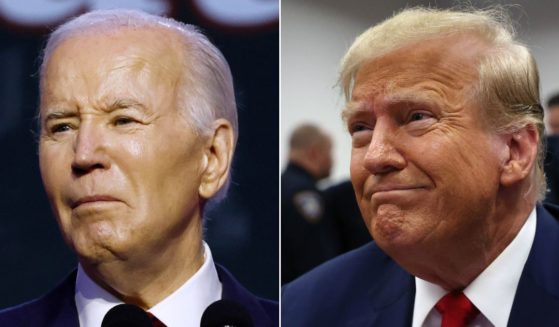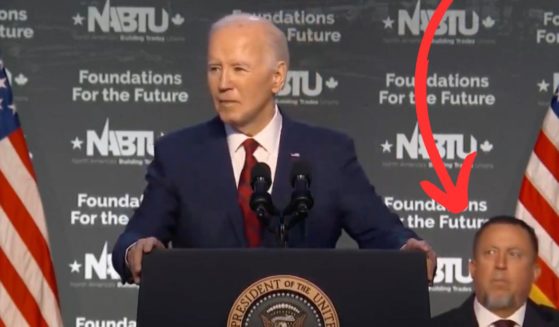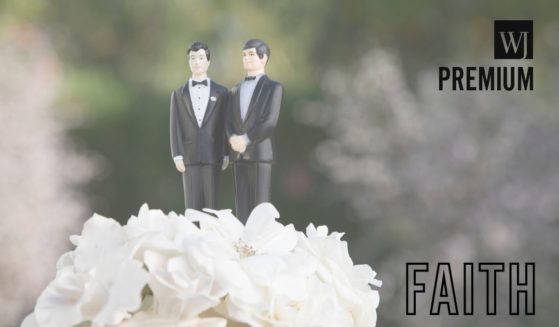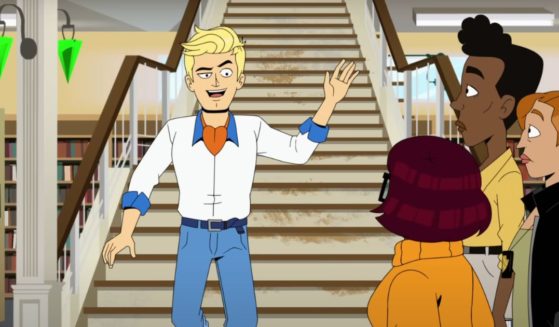Zelenskyy Fumes at NATO's 'Unprecedented and Absurd' Decision on Ukraine Membership
NATO leaders gathered Wednesday in Vilnius, Lithuania, to launch a highly symbolic new forum for ties with Ukraine after committing to provide the country with more military assistance for fighting Russia.
However, their offer of only vague assurances of future Ukraine membership in NATO — something that Russian officials have said would “guarantee” World War III — frustrated Ukrainian President Volodymyr Zelenskyy.
U.S. President Joe Biden and his NATO counterparts sat down with Zelenskyy in the new NATO-Ukraine Council, a permanent body where the 31 allies and Ukraine can hold consultations and call for meetings in emergency situations.
The setting is part of NATO’s effort to bring Ukraine as close as possible to the military alliance without actually joining it.
On Tuesday, the leaders said in their communique summarizing the summit’s conclusions that Ukraine can join “when allies agree and conditions are met.”
“Today we meet as equals,” NATO Secretary-General Jens Stoltenberg said Wednesday at a joint news conference with Zelenskyy. “I look forward to the day we meet as allies.”
The ambiguous plan for Ukraine’s future membership reflects the challenges of reaching consensus among the alliance’s current members while the war continues.
Zelenskyy expressed his disappointment alongside his appreciation for military hardware being promised by Group of Seven industrial nations.
“The results of the summit are good, but if there were an invitation, that would be ideal,” the Ukraine leader said through a translator.
He was more conciliatory on Wednesday than the previous day, when he harshly criticized the lack of a timeline for membership as “unprecedented and absurd.”
“NATO needs us just as we need NATO,” he said alongside Stoltenberg.
Ukraine’s future membership was the most divisive and emotionally charged issue at this year’s summit.
NATO countries are willing to keep sending billions of dollars in weapons and aid to help Ukraine hold the line against the Russian invasion, but they know that allowing Ukraine to join their ranks could greatly escalate the conflict.
Under Article 5 of the NATO charter, members are obligated to defend each other from attack, which could swiftly draw the U.S. and other nations into direct fighting with Russia.
In addition, there are concerns that Ukraine’s democracy is unstable and its corruption remains too deeply rooted.
“We have to stay outside of this war but be able to support Ukraine,” Belgian Prime Minister Alexander De Croo said Wednesday. “We managed that very delicate balancing act for the last 17 months. It’s to the benefit of everyone that we maintain that balancing act.”
Biden has said membership for Ukraine is premature. “I think we have to lay out a rational path for Ukraine to be able to qualify to be able to get into NATO,” he told CNN this week.
Latvian Prime Minister Krisjanis Karins, whose country lies on NATO’s eastern flank and has a long, troubled history with Russia, said he would have preferred more for Ukraine.
“There will always be a difference of flavor of how fast you would want to go,” he said. However, Karins added, “at the end of it, what everyone gets, including Ukraine, and what Moscow sees is we are all very united.”
Amanda Sloat, senior director of European affairs for the U.S. National Security Council, defended the summit’s decisions against Zelenskyy’s harsh complaint.
“I would agree that the communique is unprecedented, but I see that in a positive way,” she told reporters on Wednesday.
Sloat noted that Ukraine will not need to submit a “membership action plan” as it seeks to join NATO, although she said “there are still governance and security sector reforms that are going to be required.”
The action plan is usually a key step in the process that involves advice and assistance for countries seeking to join.
Defining an end to hostilities is no easy task. Officials have declined to define the goal, which could suggest a negotiated ceasefire or Ukraine reclaiming all occupied territory. Either way, Russian President Vladimir Putin would essentially have veto power over Ukraine’s NATO membership by prolonging the conflict.
Wednesday’s commitments will include a new G7 framework that would provide for Ukraine’s long-term security.
The British foreign ministry said the G7 would “set out how allies will support Ukraine over the coming years to end the war and deter and respond to any future attack.”
The ministry added that the framework marks the first time that this many countries have agreed to a “comprehensive long-term security arrangement of this kind with another country.”
British Prime Minister Rishi Sunak said in a statement that supporting Ukraine’s “progress on the pathway to NATO membership, coupled with formal, multilateral, and bilateral agreements and the overwhelming support of NATO members will send a strong signal to President Putin and return peace to Europe.”
Sloat said the commitments will show Russia “that time is not on its side.”
Moscow reacted harshly to the G7 plan.
“We consider this extremely ill-judged and potentially very dangerous,” Kremlin spokesman Dmitry Peskov told reporters. He added that “by providing security guarantees to Ukraine, they’re infringing on Russia’s security.”
Although international summits are often tightly scripted, this one has seesawed between conflict and compromise.
At first, leaders appeared to be deadlocked over Sweden’s bid for membership in the alliance. However, Turkey unexpectedly agreed to drop its objections on Monday, the night before the summit formally began. The deal led to boasts of success from leaders who were eager for a display of solidarity in Vilnius.
“This summit is already historic before it has started,” Stoltenberg said.
The Western Journal has reviewed this Associated Press story and may have altered it prior to publication to ensure that it meets our editorial standards.
Truth and Accuracy
We are committed to truth and accuracy in all of our journalism. Read our editorial standards.












